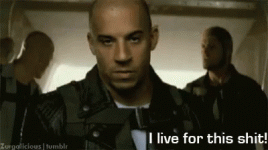AG31
Literotica Guru
- Joined
- Feb 19, 2021
- Posts
- 4,074
Here's an excerpt from @onehitwanda's excellent essay, Painting with Soft Brush.
Does a cliche ever start out as anything but a perfect expression?
"Consider the familiar sentence below:
And here's my comment: "One little quibble. "It was a dark and stormy night" wasn't a cliche the first time it was used. It was so perfect that it became a cliche."It was a dark and stormy night.
This old chestnut frequently comes up as an example of what not to do - for good reason. It's a cliché, and while clichés have their places, this one almost never does."
Does a cliche ever start out as anything but a perfect expression?
